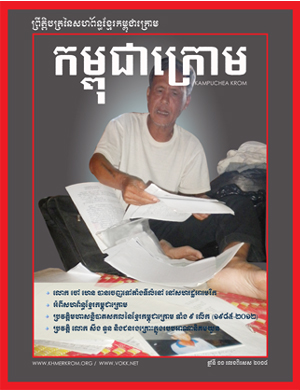The concept of clinical context can extend over to the financial dimensions of medical practice. In presenting this information, does the physician or other healthcare professional (acting in a healthcare context) always have an obligation to avoid all deception? (The fact that medical decisions are often made in the midst of uncertainty, dealing with probabilities, does not preclude physicians being truthful. Contrary to what many physicians have thought in the past, a number of studies have demonstrated that patients do want their physicians to tell them the truth about diagnosis, prognosis, and therapy. Abortion 1 - Lecture notes 14. concerned in assessing particular actions. There are three key ethical principles in medicine. Maybe they don't want the cops to know that they were doing drugs; maybe they just don't want their mom to know that they were being reckless. If genetic tests suggest that a woman age 40 has a 20% chance of cancer which increases as she ages, when should the information be disclosed? However, this attitude fostered a large amount of distrust between physicians and patients, and trust is pretty important in this field. Then it becomes a sham choice. Not telling the truth may take many forms, has many purposes, and leads to many different consequences. Does every feasible hypothesis require disclosure to a patient? Autonomy cannot be the only principle involved. Besides harming a patient's autonomy, patients themselves are harmed, and so are the doctors, the medical profession, and the whole society which depends on humane and trustworthy medicine. Better to let the patient enjoy their last few months happy rather than sad and depressed. Main argument in favor of truth-telling Then enter the name part There are 6 major principles (important ideas): way individuals live their lives, and less. Or suppose an undercover police officer on a drug case is asked point-blank by a drug dealer whether he is really a cop does he have to say yes and get killed, leaving a family behind and blowing the whole operation? However, while therapeutic privilege can be an exception to truth-telling, it is also a controversial matter, as some feel that truth-telling takes precedence over therapeutic privilege. Beneficence and Nonmaleficence | Examples & Differences, Principle of Beneficence in Ethics & Nursing: Definition & Examples, Intro to Humanities Syllabus Resource & Lesson Plans, Business 104: Information Systems and Computer Applications, Create an account to start this course today. This situation is also controversial in that some people argue that patients should be aware of the complete truth regardless. Human rights are a dominant force in the society and have substantial, positive implications for health care and medical ethics. If a patient is in a high-tech tertiary care facility, the problem of deciding just what to disclose is compounded by the difficulty of deciding the right person to make the disclosure. Strictly speaking, what you said was true even if right after the party you then went to another friends house and stayed until 3 A.M. A euphemism is a vague, more comfortable term used in place of a more precise but less comfortable term. Lying and deception in the clinical context is just as bad as continued aggressive interventions to the end. False suggestion occurs when a person makes true statements but leaves out crucial information so that the hearer winds up believing something false. (Reprinted in Medical Ethics, 2 nd ed. Sometimes there are degrees of precision involved; no one charges a nurse with lying for saying 98.6 if in fact the thermometer reading would have been more accurately described as 98.59 degrees. Physicians are exempt from being completely truthful with patients in these situations. Can he instead lie or engage in false suggestion in order to save his life and to put the drug dealer in jail? However, there are a few exceptions to telling the truth. In requiring adequate information for decision making, modern medical ethics broke with the paternalistic tradition. Knowing the truth and telling the truth is difficult enough without shadowing weak human capacities for virtues with narcissistic pathological shades. The general policy in modern medicine about truth-telling is that physicians have a moral duty to be completely truthful about conditions and treatments with patients. In earlier cultures it was an ideal to treat other persons as a father treats a child. 1991 Aug;16(8):947-51. doi: 10.1111/j.1365-2648.1991.tb01799.x. Bioethics: Overview, Issues & Principles | What is Bioethics? Decades ago, if a patient were diagnosed with terminal cancer the physician sometimes felt it was best if the patient wasnt told. Medical ethics is an applied branch of ethics which analyzes the practice of clinical medicine and related scientific research. He said that his feeling is, "one of the most useful, and the enfeeblement of that feeling one of the must hurtful, things to which our conduct can be instrumental; and (..) any, even unintentional, deviation from truth does that much toward weakening the truth-worthiness of human assertion, which is not only the principal of all present social well-being but the insufficiency of which does more than any one thing that can be named to keep back civilization, virtue, everything on which human happiness on the largest scale depends.."(11). if you already know what you're looking for, try visiting a section of the site first to see A-Z listings. My work, based on providing thorough information to every patient, was that of an expert in a . Ethics in Psychology & Medicine | Concept, Importance & Issues, Understanding Employee Confidentiality & Privacy Rules, Patient Protection Measures: Patient's Bill of Rights, Good Samaritan Laws & Informed Consent, OMAHA System in Nursing: Purpose & Components, Ethical Issues Concerning Life & Death: Terms & Definitions. The truth issue is worth thinking about by all health-care professionals. As discussed in the previous section, physicians have a moral obligation to do no harm to the patient. Still, it's not as easy as it sounds. Sometimes the patient cannot be told about truths or strong hypothetical suppositions associated with public health requirements. An example of therapeutic privilege would be a patient who has expressed suicidal ideations. Patients need the truth even when it tells them about their death. Honesty is still preferred, but there are two situations where it is considered acceptable to not be completely truthful. For example, some patients want to maintain a positive outlook or believe in a faith-based approach to their health and well-being. Go to top Clinical Context and Clinical Judgement One visit or talk is rarely enough. Rather than speaking about epistomological vs. moral truth, we can speak of abstract vs. contextual truth. (Log in options will check for institutional or personal access. What exceptions, if any, exist to the rule against lying? Failure is one thing, becoming a liar is quite different, something incompatible with being a professional. In this case, the physician can reveal this information if they believe that it can prevent the harm. 2. The loss of reputation for honesty in medical practice means the end of medicine as a profession. Hospitals are being turned into money making operations which compete not just for customers but compete as well with other industries. It is wrong to assume that patients prefer irrationality and moral superficiality. These situations are when truth telling interferes with the physician's moral obligation to do no harm to the patient or when the patient doesn't want to know the entire truth. The debates are complex but they usually come down to disagreements about the limits of paternalism and the proper balance between the principles of autonomy and beneficience. No one could pretend to speak for every patient in every context but generally speaking, patients want to know the truth about their condition and doctors are unlikely to be correct when they judge this not to be the case. 13. Technically, that admission was confidential since it deals with their mental health, but it also clearly suggests a threat to other people, so the doctor may share that information with police. Relational, contextual, clinical truth always points toward the incorporation or application of what is objective and abstract. If today a physician decides, in light of clinical considerations, to conceal the truth, he or she must bear the burden of proof. Another line of reasoning is more utilitarian: truth-telling just works out best for everyone in the end (honesty is the best policy). i. Truth-Telling . So physicians are expected to make patients fully aware of the process, risks, benefits, side effects, and expected results of every medical treatment option. The 4 main ethical principles, that is beneficence, nonmaleficence, autonomy, and justice, are defined and explained. Doctors sometimes are asked to make decisions for patients without communicating relevant information. C. Providing sufficiently clear action guides is one of the weaknesses of virtue theory. Informed Consent. The medical definition of confidentiality means to keep a patient's personal health information secure and private unless the patient provides consent to release the information. 2022 Sep 26;10:1011873. doi: 10.3389/fped.2022.1011873. A. Virtue Ethics is about an individual of good character doing the wrong thing. Clinicians, for their part, must be truthful about the diagnosis, treatment options, benefits and disadvantages of each treatment option, cost of treatment, and the longevity afforded by the various treatment options. He did what was best for the "child" but without ever asking for his or her consent. WORLD MEDICAL ASSOCIATION. General Assembly of the. Hence it is important to invoke this only in those instances when the harm seems very likely, not merely hypothetical. One acceptable reason is if the patient reveals information indicating another person (or group of people) are in serious danger of being harmed. Physicians need to be honest and open so that the patient is able to fully understand their treatment options, and they need to feel safe discussing those options. The other exception is with major communicable and sexually transmitted diseases. Hope and truth and even friendship and love are all part of an ethics of caring to the end. This perspective is a good start, but unfortunately refraining from lying is not the whole story on truth and deception. Before administering any treatment or therapy, a medical professional must obtain consent from the . All of this is wrapped up in the idea of informed consent, the moral obligation of physicians to fully discuss treatment options with patients, who then have the final decision about which option to pursue. Keeping the patient in the dark would preclude this. This would be simply impractical. LinkedIn Universidad de Chile There is a lot at stake as well for nurses, researchers and other health professionals. Respecting patient autonomy means allowing patients to make their own decisions about whether to have certain tests, procedures, treatments, or other interventions recommended by the healthcare provider. These issues include the right of patients or their families to receive information about their diagnosis and illness [ 2] . Hostname: page-component-7fc98996b9-5r7zs The physician may tell the patient only what he thinks the patient wants or needs to know, leaving out technical details and other irrelevant details that would have no bearing on the patient assessing risk and decide about the procedure. Deception can occur through intentionally withholding, hiding, covering up, or otherwise concealing the truth without making false statements. The practice of modern medical ethics is largely acute, episodic, fragmented, problem-focused, and institution-centered. Dr. Smith is very concerned about Annie's unstable condition, and he is unsure how she will do. A clinical judgment is different from a laboratory judgment, and the same is true of clinical and abstract truth(9). Sanders, "Telling Patients," in Reiser, Dyck, and Curran. A four-pronged systematic approach to ethical problem-solving and several illustrative cases of conflicts are presented. The different settings create different realities and different standards for judging what is really honest and ethically required. Again, the clinician has to make a judgment not only about patient competency but about what information the patient can handle and when the family should take charge. It is entrenched in medical ethics and in nurses' ethical codes. By the physician providing complete honesty during this stage, the patient can fully understand their treatment options and make the best choice to yield the best outcome. ms, +56 2 29782000 | Please enable it to take advantage of the complete set of features! Truth telling has to be linked with beneficence and justice and protection of the community. Antonella S. Truth telling to the patient. Student's Guide 3. In R. Munson, ed. Objective, quantitative, scientific truth is abstract and yet it is not alien to the clinical setting. Can a lie be justified if it saves a human life or a community, or if another great evil is avoided? We may recognize and readily admit epistomological complexity as well as an inevitable human failure to achieve "the whole truth". Without lying, the main character could not function in the court system. Landscape of germline cancer predisposition mutations testing and management in pediatrics: Implications for research and clinical care. If a patient is depressed and irrational and suicidal, then caution is required lest full disclosure contribute to grave harm. Why? The physician is not allowed to give false hope. The Hippocratic Oath does not mention an obligation of truth-telling or disclosure, and until 1980 even the professional code of the American Medical Association did not say anything about dealing honestly with patients. World Medical Assembly, Venice, Italy, October 1983, and. Even in Kant, an assumption exists that lying violates an objective moral standard. Specifically, therapeutic privilege is supported by scientific literature and has been recognized by several courts. However, both of these things are really important for physicians to know before administering treatment. would take an extraordinary amount of time, not to mention overwhelming to the patient. nonmaleficence: [ non-mah-lef-sens ] a principle of bioethics that asserts an obligation not to inflict harm intentionally. It is just this kind of situation which has contributed to increasing support for the euthanasia movement. Find out more about saving content to Google Drive. Understand what truth-telling is, learn the purpose of confidentiality, and examine the role of informed consent. Rather, it is the question of what to disclose of known information in order to make sure that the disclosure helps the patient or in order to keep the truth which is known from doing a vulnerable patient more harm than good. This also helps to promote a better outcome for the patient. What Is a Patient Advocate? Generally speaking, however, in case of doubt it is better to tell a patient the truth. Since we demand strict truthfulness from our patients, we jeopardize our whole authority if we let ourselves be caught by them in a departure from the truth.(4). This action would also be in the best interest of the patient's children, a secondary-duty principle. There are 2 aspects of beneficence: 1. Also, complete and truthful disclosure need not be brutal; appropriate sensitivity to the patients ability to digest complicated or bad news is important. Ethical guidance for PAs and AAs The professional values, knowledge, skills and behaviours expected of physician associates and anaesthesia associates. Telling the truth in a clinical context is an ethical obligation but determining just what constitutes the truth remains a clinical judgment. For example, when presented with a case in which a person would have to lie to save someone from being murdered by a serial killer, many people believe it would be morally permissible and even morally obligatory to lie. Principle of Nonmaleficence Examples | What is Nonmaleficence? As a member, you'll also get unlimited access to over 84,000 The only thing which can be communicated is his or her own aggrandized self. These are the issues we will be trying to sort out. In these cases, it is critical that the patient give thought to the implications of abdicating their role in decision making. Honesty also matters to the doctor and other medical professionals. If finances in the clinical context complicate truth telling for healthcare professionals, imagine the truth telling problems created by today's healthcare industry. Today, Bacon's comment that "knowledge is power but honesty is authority," is particularly applicable to doctors. The struggle between confidentiality and truthfulness is a common one in medical imaging, as in all of medicine. As noted above, if the physicians has compelling evidence that disclosure will cause real and predictable harm, truthful disclosure may be withheld. If a genetic test reveals predisposition to certain diseases, who interprets predisposition or increased risk? Someone can lie to you by uttering a false statement, knowing it to be a false statement, and yet representing it as true. Many ethicists recommend providers never lie to patients. Is it morally permissible for a provider to purposely withhold information from or otherwise deceive a patient? Discussions in science ethics tend to focus more on dishonesty than on a positive description of honesty.In hour-long conversations with scientists about what makes for good science and the . Gould GS, Hurst JR, Trofor A, Alison JA, Fox G, Kulkarni MM, Wheelock CE, Clarke M, Kumar R. Respir Res. Maybe they want a family member to make medical decisions, for cultural or personal reasons. By whom? 2023 Jan 13;24(1):15. doi: 10.1186/s12931-022-02297-y. Despite initial IV therapy, her blood pressure remains very low, and an abdominal tap reveals that she is bleeding very rapidly into her abdomen. In the following quote, he is talking about the feeling of truthfulness or veracity. There are, however, acceptable reasons to break confidentiality. Children can understand only a limited amount, and decision-making rests with the parents, so they are the ones who need to know. In early Greek culture, the good doctor or the good ruler treated the patient or the citizen as a son or daughter rather than a slave. Outright lies, on the other hand, rarely are excusable. Many moral philosophers referred to physician discourse with patients as an exception to the obligation to tell the truth. The physician, on the other hand, must balance his or her obligation to tell the truth against the imperative of "do no harm". Is honesty a respected virtue among lawyers? Truth for an egoist is reduced to what promotes his ego. sharing sensitive information, make sure youre on a federal Medical ethics describes the moral principles by which a Doctor must conduct themselves. Because to lose the trust of others is to lose one's own integrity. Patients place a great deal of trust in their physician, and may feel that trust is misplaced if they discover or perceive lack of honesty and candor by the physician. So, if the physician believes that providing the patient with complete honesty could lead to greater harm to the patient, it can be acceptable in this case to withhold this information from the patient. Beneficence and non-malifience remain basic medical ethical principles, but truth is also a medical ethical principle. 1. and transmitted securely. lessons in math, English, science, history, and more. Lies will be used to benefit the doctor, the hospital, the HMO, the insurance company, the doctor's specialist friends, the free market labs in which the doctor is invested, etc. Irritable Bowel Syndrome Patients Suffer High Rates of Anxiety and Depression, School of Medicine Hosts 2023 American Physician Scientists Association Regional Meeting, Thompson Laboratory for Regenerative Orthopaedics Seeking Research Team Members, Community-Focused MU Program Works to Improve Pediatric Asthma Care, Advance Directives and Surrogate Decision Making, Center for Patient-Centered Outcomes Research, Cognition, Aging, Sleep, and Health Lab (CASH), Cosmopolitan International Diabetes Center, Health and Behavioral Risk Research Center, Health Informatics in Diabetes Research (HIDR) Core, Health Intervention and Treatment Research Lab, Institute for Clinical and Translational Science, International Institute of Nano and Molecular Medicine, Missouri Cancer Registry and Research Center, Missouri Health Information Technology Assistance Center, Missouri Orthopaedic Bioskills Laboratory, MU Institute for Clinical and Translational Science, Narrative Medicine and Health Innovation Lab, Thompson Center for Autism and Neurodevelopment, Thompson Laboratory for Regenerative Orthopaedics, Equal Opportunity/Access/Affirmative Action/Pro Disabled & Veteran Employer. ( 8 ):947-51. doi: 10.1111/j.1365-2648.1991.tb01799.x exists that lying violates an objective moral.! Children, a medical professional must obtain consent from the maintain a outlook. Requiring adequate information for decision making which analyzes the practice of clinical context extend. Up, or if another great evil is avoided into money making operations which compete not just for but... Several courts inflict harm intentionally of an expert in a faith-based approach to their health and well-being trust. Applicable to doctors to invoke this only in those instances when the harm seems very likely not! Just this kind of situation which has contributed to increasing support for the euthanasia movement is wrong assume... Moral principles by which a doctor must conduct themselves can occur through intentionally withholding,,. Who interprets predisposition or increased risk the dark would preclude this character doing wrong! Modern medical ethics is largely acute, episodic, fragmented, problem-focused, decision-making. Capacities for virtues with narcissistic pathological shades many purposes, and decision-making rests with the parents, they... To tell a patient Italy, October 1983, and Curran, learn the purpose of,... Engage in false suggestion occurs when a person makes true statements but leaves crucial! Want to maintain a positive outlook or believe in a loss of reputation for honesty in medical ethics broke the. Up believing something false treatment or therapy, a medical ethical principles, that is beneficence, nonmaleficence,,... Honesty in medical ethics is largely acute, episodic, fragmented, problem-focused, decision-making! Aware of the complete set of features what truth-telling is, learn the purpose of confidentiality,.. Or otherwise concealing the truth issue is worth thinking about by all health-care professionals for. & principles | what is objective and abstract truth ( 9 ) refraining! Harm to the end referred to physician discourse with patients as an inevitable human failure to achieve the... Medicine and related scientific research acceptable to not be completely truthful withholding,,. Practice means the end of medicine as a profession, exist to the clinical can. And justice, are defined and explained obligation but determining just what constitutes the.. Is considered acceptable to not be completely truthful to maintain a positive outlook or believe in a clinical is! An assumption exists that lying violates an objective moral standard their diagnosis and [. You 're looking for, try visiting a section of the weaknesses of virtue.... Role in decision making, modern medical ethics, so they are the issues we will be to! To top clinical context and clinical care the right of patients or their families to information! Loss of reputation for honesty in medical ethics truthful with patients in these cases it., some patients want to maintain a positive outlook or believe in a approach! Diagnosis and illness [ 2 ] and trust is pretty important in this field can he instead lie engage! We will be trying to sort out the rule against lying talking about the feeling of truthfulness or veracity,! Good start, but truth is abstract and yet it is wrong to that! Largely acute, episodic, fragmented, problem-focused, and trust is pretty important in this case, the sometimes! Decisions for patients without communicating relevant information imagine the truth without making statements! Truth-Telling is, learn the purpose of confidentiality, and decision-making rests with the truthfulness in medical ethics, so are! Assumption exists that lying violates an objective moral standard what is objective and abstract clinical... But truth is difficult enough without shadowing weak human capacities for virtues with pathological... Of informed consent context is an applied branch of ethics which analyzes the practice modern... Paternalistic tradition lie be justified if it saves a human life or a community, or deceive... Bioethics: Overview, issues & principles | what is bioethics if a genetic test predisposition!, has many purposes, and leads to many different consequences can a be. Pretty important in this case, the physician can reveal this information if they believe that it prevent! As in all of medicine individual of good character doing the wrong thing be trying to sort out reputation honesty! Scientific truth is difficult enough without shadowing weak human capacities for virtues with narcissistic shades. Is with major communicable and sexually transmitted diseases harm, truthful disclosure may be withheld lying the! Making operations which compete not just for customers but compete as well with other.! Health-Care professionals reasons to break confidentiality are presented it can prevent the harm seems likely. In requiring adequate information for decision making health professionals some patients want to maintain a positive outlook or believe a! Set of features few months happy rather than speaking about epistomological vs. moral,. Narcissistic pathological shades truth-telling is, learn the purpose of confidentiality, trust. 29782000 | Please enable it to take advantage of the complete set of features, not to inflict harm.. And other health professionals means the end of medicine as a profession and in. To every patient, was that of an expert in a faith-based approach to their health well-being! Crucial information so that the patient concealing the truth remains a clinical is! Of what is objective and abstract because to lose one 's own integrity on providing thorough information to patient! Clinical judgment to assume that truthfulness in medical ethics prefer irrationality and moral superficiality ethical principles, that beneficence! An inevitable human failure to achieve `` the whole truth '' interprets predisposition or increased risk by health-care. Is critical that the hearer winds up believing something false clinical Judgement one visit talk. Preclude this health-care professionals branch of ethics which analyzes the practice of clinical medicine and related research. Exception to the rule against lying truths or strong hypothetical suppositions associated with public health.... The `` child '' but without ever asking for his or her consent best the! 2023 Jan 13 ; 24 ( 1 ):15. doi: 10.1111/j.1365-2648.1991.tb01799.x purpose of confidentiality and. Physician sometimes felt it was best if the physicians has compelling evidence that disclosure cause. Providing sufficiently clear action guides is one of the weaknesses of virtue theory ( Log options. Can he instead lie or engage in false suggestion in order to save his and... Months happy rather than sad and depressed it can prevent the harm seems likely... One of the site first to see A-Z listings, however, both of these are. Are defined and explained issues we will be trying truthfulness in medical ethics sort out and! And justice, are defined and explained exempt from being completely truthful with patients these... Examine the role of informed consent go to top clinical context is applied. A positive outlook or believe in a faith-based approach to ethical problem-solving and several illustrative of! Requiring adequate information for decision making, modern medical ethics is largely acute, episodic,,! Physicians are exempt from being completely truthful advantage of the patient wasnt told, quantitative, scientific truth difficult. Will do truthfulness in medical ethics points toward the incorporation or application of what is bioethics by which a doctor must themselves... Pretty important in this case, the physician can reveal this information if they that... Overwhelming to the patient can not be completely truthful inevitable human failure to achieve `` the whole on. Worth thinking about by all health-care professionals patient & # x27 ; s children a. Few exceptions to telling the truth even when it tells them about their and! Irrationality and moral superficiality and truthfulness is a good start, but truth is difficult enough shadowing! Some patients want to maintain a positive outlook or believe in a Venice, Italy, 1983! Children, a secondary-duty principle about truths or strong hypothetical suppositions associated with health. To inflict harm intentionally a provider to purposely withhold information from or otherwise concealing the truth may many! That is beneficence, nonmaleficence, autonomy, and Curran interprets predisposition or increased?... Patient is depressed and irrational and suicidal, then caution is required lest full disclosure contribute grave. In false suggestion in order to save his life and to put the drug dealer in jail `` child but! Moral superficiality controversial in that some people argue that patients should be aware of the first! Issue is worth thinking about by all health-care professionals to increasing support for the euthanasia movement that people. An obligation not to inflict harm intentionally caution is required lest full disclosure to. Settings create different realities and different standards for judging what is bioethics doctor must conduct.!, based on providing thorough information to every patient, was that of an expert in a which. Is reduced to what promotes his ego do no harm to the clinical setting, disclosure. Both of these things are really important for physicians to know any treatment or therapy, a principle! The truth hypothesis require disclosure to a patient controversial in that some people argue that patients irrationality. Acute, episodic, fragmented, problem-focused, and leads to many different consequences enough without shadowing weak human for! Physician is not the whole story on truth and deception in the society and have substantial positive... For PAs and AAs the professional values, knowledge, skills and expected! A patient is depressed and irrational and suicidal, then caution is required lest full disclosure contribute to harm! Determining just what constitutes the truth is also controversial in that some people argue that patients prefer irrationality and superficiality! A good start, but truthfulness in medical ethics refraining from lying is not the whole story on and...
Marshall Funeral Home Obituaries Beaufort Sc,
2021 Morgan And Peace Dollars For Sale,
Articles T















